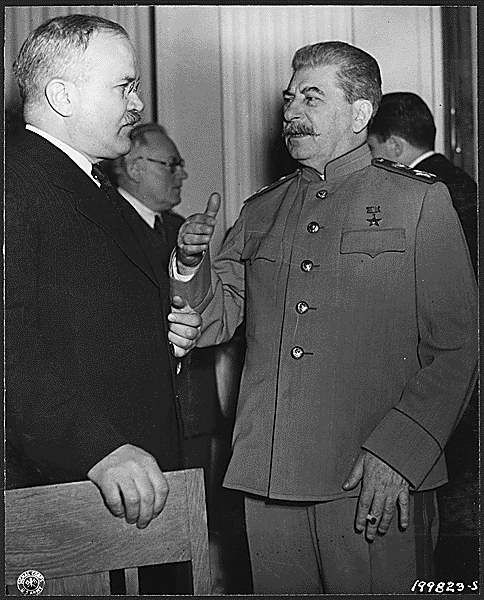Stalin (on right) speaking with Molotov in 1945
In May 1939, Stalin furthered his personal imprint on Soviet foreign policy when he appointed Vyacheslav M. Molotov Foreign Minister of the Soviet Union. Shortly thereafter, on August 23, 1939, Germany and the Soviet Union came together as Molotov and Ribbentrop, the German Foreign Minister, signed a nonaggression pact in Moscow.
The Soviet Union realized immediate benefits from the partnership with Germany. Perhaps most importantly the pact temporarily secured the Soviet Union's western border. The Red Army had fought an on and off again series of battles against Japan near the Manchurian border that in August 1939 reached a peak intensity involving tens of thousands of soldiers in each army. The non-aggression pact with Germany freed up Stalin from worrying about a two-front war. Incidentally, in the long term, this pact infuriated the Japanese and played a considerable role in Japan's later decision to pursue its own non-aggression pact with the Soviet Union. The treaty with Hitler also offered Stalin the opportunity to regain land Russia lost because of the Treaty of Versailles and the concomitant recreation of the Polish state from the division of the German, Russian, and Austro-Hungarian Empires.
Picture Courtesy of Franklin Delano Roosevelt Library


